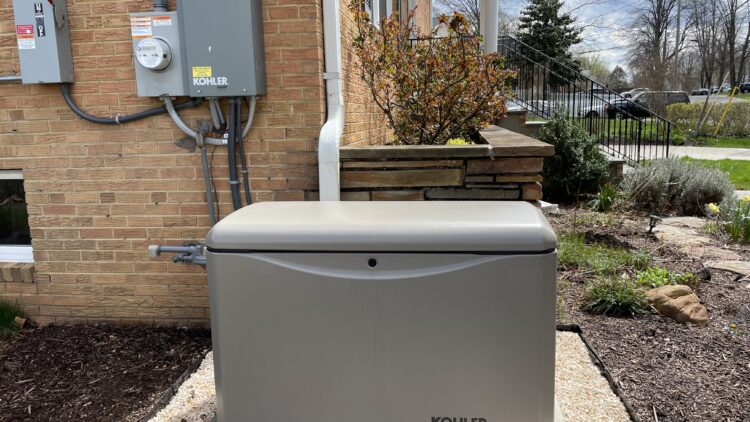The Ultimate Guide to Residential Generator Installation: Ensuring Power When You Need It Most
A power outage can feel like stepping back in time in today’s ever-connected world. From preserving food in refrigerators to keeping our homes comfortable and our devices charged, electricity is the silent backbone of modern comfort and convenience. This is where the expertise of Meyer Electrical comes into play, ensuring that your home remains a beacon of comfort and security, even when the grid lets you down. Here’s everything you need to know about residential generator installation.
Understanding the Need for a Residential Generator
A residential generator is more than just a backup plan; it’s peace of mind. Whether due to natural disasters, utility work, or unexpected outages, losing power can disrupt your daily life and pose serious risks to safety and comfort. An adequately installed generator ensures that critical systems like heating, cooling, medical equipment, and food preservation operate smoothly, safeguarding your home and family.
Types of Generators: Finding Your Perfect Match
Generators come in various sizes and fuel types, each with its advantages. The most common types include:
- Portable Generators: Ideal for temporary power needs, powering a few appliances, or outdoor activities.
- Standby Generators: Permanently installed and capable of powering your entire home automatically when an outage occurs.
Fuel options range from gasoline and diesel to propane and natural gas, with each offering different benefits in terms of availability, storage, and environmental impact. Meyer Electrical can help assess your needs and recommend the best type and size for your home.
The Installation Process: What to Expect
Installing a residential generator is a task for professionals. It involves several critical steps to ensure safety, compliance with local codes, and optimal performance:
- Site Assessment: A professional will evaluate your home’s electrical needs, generator placement, and any local regulations affecting installation.
- Choosing the Right Model: Based on the assessment, you’ll select a generator that meets your power needs and fits your budget.
- Preparation and Placement: This includes preparing the site and ensuring stable, level ground and adequate ventilation.
- Electrical Hookup: Connecting the generator to your home’s electrical system requires expertise to ensure safety and functionality. This often involves installing a transfer switch to safely switch between utility and generator power.
- Fuel Supply: A professional will ensure a safe connection to your home’s gas supply if you’re using a gas-powered generator.
- Testing and Commissioning: Once installed, the generator will be thoroughly tested to ensure it operates correctly and safely during an outage.
Safety and Maintenance: Keeping Your Generator Ready
Safety is paramount when it comes to generators. Carbon monoxide poisoning, fire hazards, and electrical risks are all serious considerations. Meyer Electrical adheres to stringent safety protocols during installation and provides comprehensive guidance on safely operating and maintaining your generator, including:
- Regular maintenance checks
- Proper ventilation to prevent carbon monoxide buildup
- Safe fuel storage and handling
- Adherence to local noise ordinances
Choosing Meyer Electrical: Your Trusted Partner
At Meyer Electrical, we understand the importance of uninterrupted power. With years of experience and a commitment to excellence, our team ensures a seamless, safe, and efficient generator installation process. From initial consultation to post-installation support, we’re with you every step of the way, ensuring that your home remains a sanctuary of comfort and safety, no matter what.
In conclusion, a residential generator is a smart investment in your home’s comfort and safety. With the right preparation, professional installation, and ongoing maintenance, you can enjoy peace of mind knowing that your home will remain powered during any outage. Contact Meyer Electrical today to start the process of safeguarding your home with a reliable, professionally installed generator.


